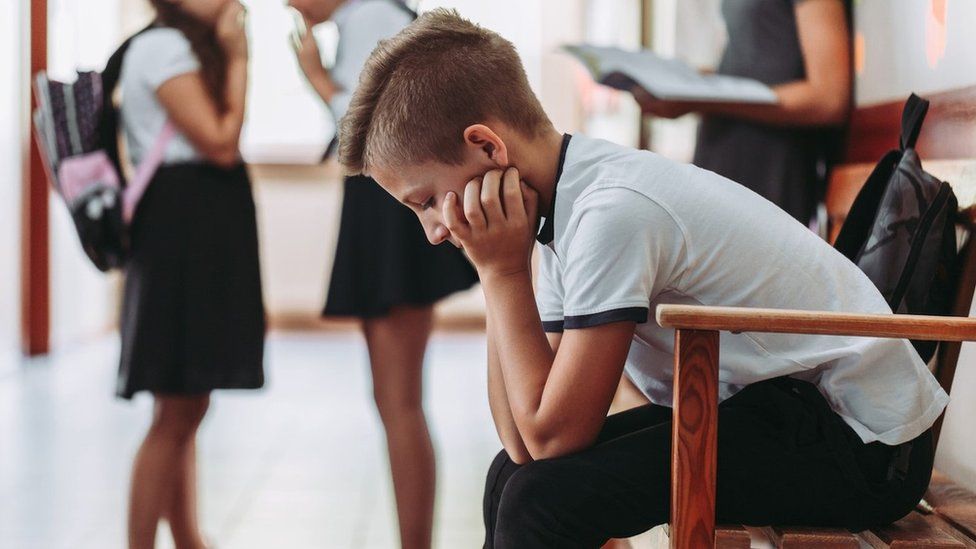
Suspensions in spring 2022/2023 have risen by a third on the year before
England is on course for the highest number of school suspensions in a single year, figures show.
According to data from the Department for Education (DfE) there were almost 264,000 suspensions in spring 2022/2023 – the largest number on record for one term.
Persistent disruptive behaviour is the most common reason for children being suspended, or excluded, from school.
Teaching unions say schools do not have enough resources to support pupils.
Figures show suspensions have risen by almost three-quarters compared with spring 2019 – before the Covid pandemic.
The previous highest total of suspensions in a single year was in 2021/2022 with 578,280.
According to the latest data available there were 511,270 suspensions for the autumn and spring terms alone in 2022/2023.
If numbers continue on the same trajectory for the summer term, schools in England will see a record number of suspensions over this academic year.
On exclusions, figures show there were 3,039 permanent exclusions in spring term last year – an increase of more than a third (39%) on the same period the year before.
The Association of School and College Leaders says the data reflects what they are hearing from school leaders.
“There is a really difficult situation with challenging behaviour among some pupils,” said Pepe Di’Iasio, the General Secretary. “There are a number of reasons for this – mental health issues, unmet special educational needs, disengagement with the curriculum, and, in some cases, wider problems within families.
“This means that behavioural issues often escalate to a point at which a suspension – or exclusion – is the only option that is left.”
A survey commissioned by the BBC found nearly one in five teachers have been hit by a pupil this year, with some describing the situation with behaviour a “never-ending battle”.
The Department for Education says it has invested £10m in behaviour hubs to support schools.
Another teaching union says the figures are a real cause for concern and “inadequate government funding” has led to a reduction in pastoral care and teaching assistants.
Paul Whiteman, general secretary at the National Association of Head Teachers said: “Early intervention is often crucial – government funding cuts to services that support schools have made it harder for children and families to access help from mental health services and social care amid long waiting lists and higher thresholds.”
The North East had the highest rate of suspensions and exclusions, while inner and outer London recorded the lowest.
The Department for Education has been contacted for comment.
Additional reporting by Nadyne Dunkley.
Are you affected by the issues raised in this story? Share your experiences by emailing haveyoursay@bbc.co.uk.
Please include a contact number if you are willing to speak to a BBC journalist. You can also get in touch in the following ways:
If you are reading this page and can’t see the form you will need to visit the mobile version of the BBC website to submit your question or comment or you can email us at HaveYourSay@bbc.co.uk. Please include your name, age and location with any submission.








